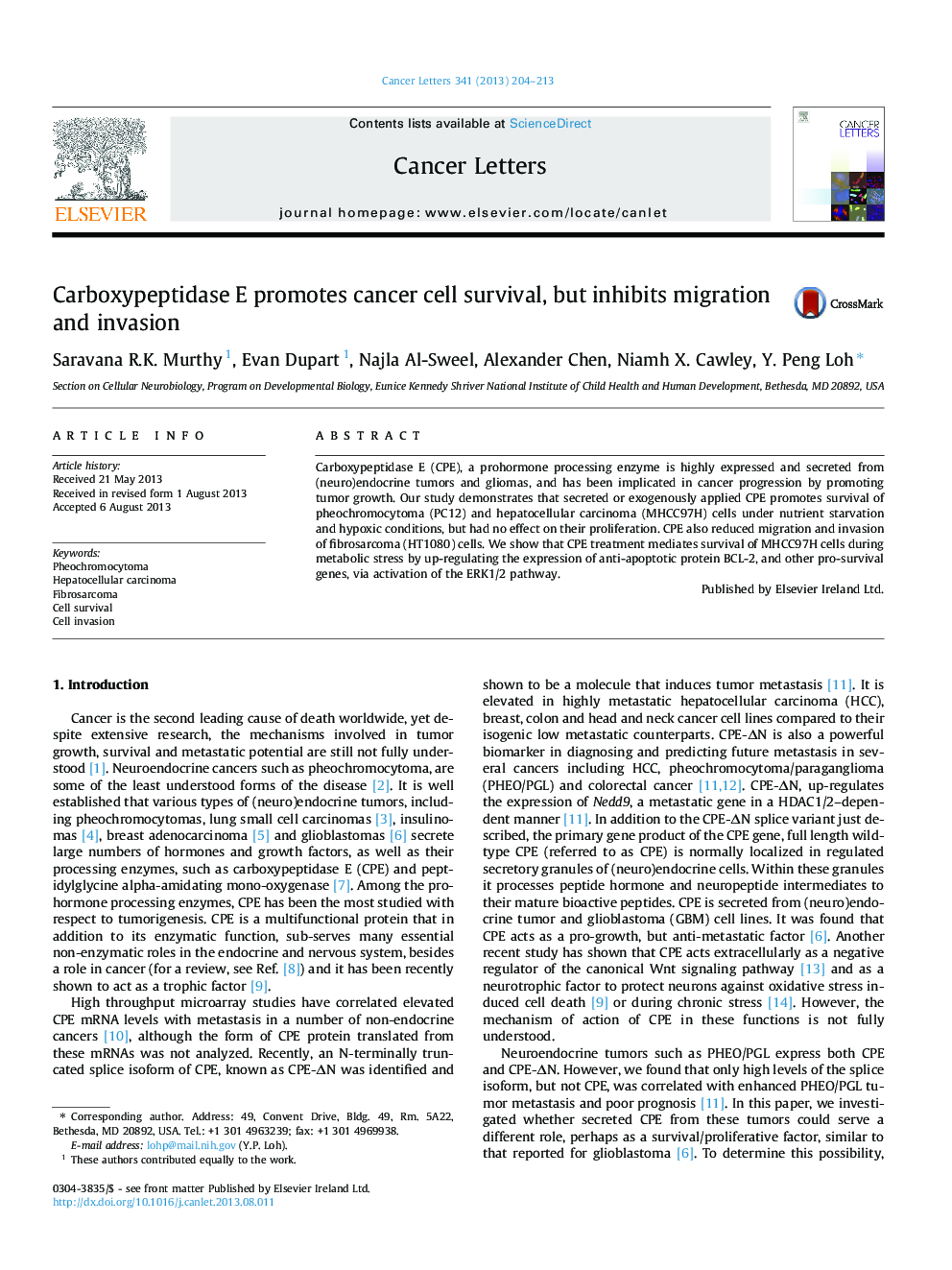| Article ID | Journal | Published Year | Pages | File Type |
|---|---|---|---|---|
| 2112788 | Cancer Letters | 2013 | 10 Pages |
•Secreted CPE promotes survival of neuroendocrine tumor cells.•Exogenous CPE protects HCC cells from cytotoxicity under metabolic stress.•CPE promotes survival by up-regulating BCL-2 through ERK signaling in HCC cells.•CPE inhibits migration and invasion of cancer cells.
Carboxypeptidase E (CPE), a prohormone processing enzyme is highly expressed and secreted from (neuro)endocrine tumors and gliomas, and has been implicated in cancer progression by promoting tumor growth. Our study demonstrates that secreted or exogenously applied CPE promotes survival of pheochromocytoma (PC12) and hepatocellular carcinoma (MHCC97H) cells under nutrient starvation and hypoxic conditions, but had no effect on their proliferation. CPE also reduced migration and invasion of fibrosarcoma (HT1080) cells. We show that CPE treatment mediates survival of MHCC97H cells during metabolic stress by up-regulating the expression of anti-apoptotic protein BCL-2, and other pro-survival genes, via activation of the ERK1/2 pathway.
